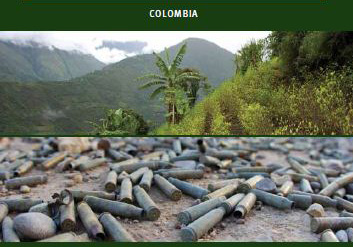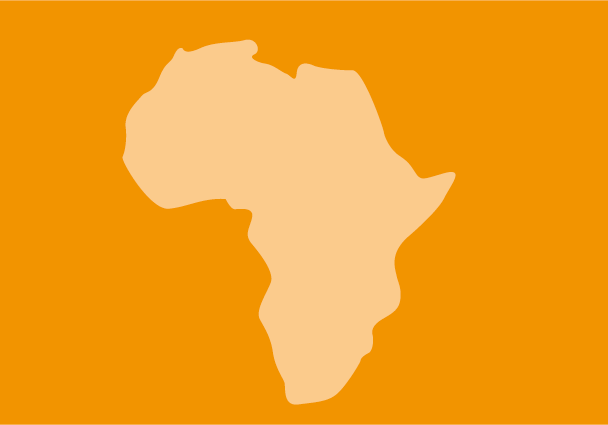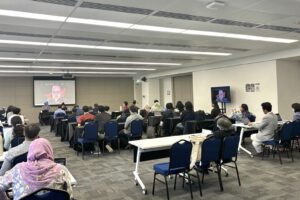
Jan 1, 2010
El sistema judicial tiene varias falencias que hacen que muchos mecanismos a prevenir o hacer cesar los abusos de derechos constitucionales por parte de empresas sean poco efectivos.
El acceso a la justicia y a un recurso efectivo ha devenido un elemento crucial en el trabajo de protección de los derechos humanos en el contexto de actividades empresariales, asi como un area de importancia primordial para jueces y abogados dedicados a promover el estado de derecho y los derechos humanos.
El informe señala que a pesar de que la normatividad colombiana contiene una amplia gama de acciones y recursos encaminados a prevenir o hacer cesar los abusos de derechos constitucionales por parte de empresas, el sistema judicial tiene varias falencias que hacen que muchos de estos mecanismos sean poco efectivos.
La mayoría de los obstáculos identificados tienen origen en condiciones estructurales de la administración de justicia colombiana que se agudizan en los casos en los que las empresas hacen parte de los reclamos y litigios.
Areas de atención especial incluyen: proyectos y mega-proyectos de explotación y/o desarrollo económico que afectan comunidades indígenas y campesinas, y áreas en las que defensores de derechos humanos se encuentran desprotegidos frente a estratégias hostiles de parte de ciertas empresas y actores armados.
Colombia-access to justice corporations-thematic report-2010-spa (full text, PDF)

Jan 1, 2010
 Access to legal remedies and justice has become a crucial element in today’s work of protecting human rights in the context of business activities. It is also an area of primary importance for judges and lawyers who work promoting the rule of law and human rights. The South African legal system has considerable potential to ground liability and provide remedies for a wide range of possible violations of victims’ rights. There is room for considerable development and re-interpretation. This potential is not wholly realised in practice. The key constraint is the very limited access to legal resources that victims have. The key factors affecting the extent to which the potential of the system is realised depend on responses to this constraint. The most notable factors are the interpretative approach of the courts, the current lack of clarity in certain substantive areas of the law, the extent to which victims are connected to competent representatives, and the extent to which a speedy and cheap remedial mechanism is available.
Access to legal remedies and justice has become a crucial element in today’s work of protecting human rights in the context of business activities. It is also an area of primary importance for judges and lawyers who work promoting the rule of law and human rights. The South African legal system has considerable potential to ground liability and provide remedies for a wide range of possible violations of victims’ rights. There is room for considerable development and re-interpretation. This potential is not wholly realised in practice. The key constraint is the very limited access to legal resources that victims have. The key factors affecting the extent to which the potential of the system is realised depend on responses to this constraint. The most notable factors are the interpretative approach of the courts, the current lack of clarity in certain substantive areas of the law, the extent to which victims are connected to competent representatives, and the extent to which a speedy and cheap remedial mechanism is available.
South Africa-access to justice corporations-thematic report-2010 (full text, PDF)

Jan 1, 2010
This study surveys the international and domestic legal framework applicable in engaging the liability of business enterprises for human rights and environmental abuses occurring in the Philippines.
The domestic law of the Philippines does provide, substantively and procedurally, for some measure of judicial and/or administrative remedy for victims of human rights abuse by corporations and other business enterprises. Nonetheless, as the study illustrates, access to justice for such victims remains highly limited. Major obstacles include the murky or impenetrable corporate structures of alleged abusive companies; prohibitive fees imposed on claimants, and disincentives for pursuing remedies, which may arise from incidence or threats of violence, reprisals, or counter-litigation. Despite their prevalence, these obstacles are not always insurmountable. By reducing fees and processing times of human rights claims, providing training on technical elements of human rights law to the judiciary, and reforming law to enforce corporate transparency, the study suggests that the Filipino justice system can be modified to more effectively provide for adequate remedies in cases of corporate human rights abuse.
Philippines-access justice-publication-2010 (full text in English, PDF)

Jan 1, 2010
Access to justice and effective legal remedies are crucial elements in the protection of human rights in the context of business activities.
It is also relevant to the work of judges and lawyers who promote the rule of law and human rights. The Dutch legal order allows for victims of corporate human rights abuses to seek remedy through civil or criminal proceedings. The potential for successful litigation in the criminal justice system remains limited. Civil liability is more promising, in part because civil liability may be founded on the breach of international so?-law standards of corporate conduct. In either case, complex corporate structures present a formidable barrier to successful litigation. Jurisdiction barriers are also present, as Dutch courts are generally reserved in claiming authority over foreign subsidiaries of Dutch parent companies. Notable exceptions do exist however. Procedural barriers also confront claimants of human rights abuses, particularly relating to evidence, compensation and costs. Despite these obstacles, there is much room for reform of the Dutch justice system to provide claimants of corporate human rights abuse with timely, accessible and effective adjudication.
Netherlands-access justice-publication-2010 (full text in English, PDF)

Jan 1, 2010
This study examines how the Chinese legal order can both limit and aid access to justice for victims of corporate human rights abuses.
Although the Chinese legal system has established liability for corporations, in regard to the legal remedies available, claimants face a number of obstacles preventing them from obtaining fair, timely and effective adjudication of their claims. Case studies relating to mining, internet censorship and contaminated food products provide palpable illustrations of these obstacles, evidencing that the legal and political reforms in China are lagging behind the economic and market reforms. Judges lack independence to adjudicate, especially in politically sensitive cases, and the legal profession faces severe limitations. Class action and public interest litigation remain undeveloped, the availability of legal aid is limited, and the law concerning the piercing of the corporate veil has not yet been tested in a human rights case. These factors together make victims’ search for justice a daunting task. The study concludes by offering recommendations to improve access to justice in China for victims of human rights abuse by corporations.
China-access justice-publication-2010 (full text in English, PDF)










